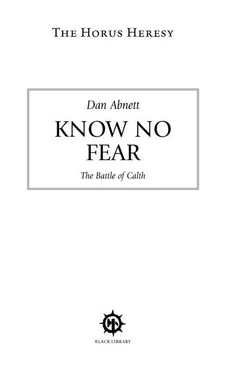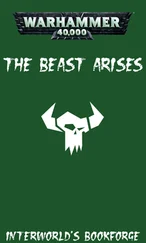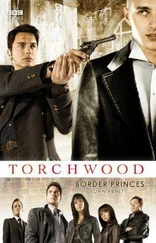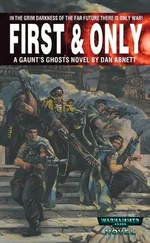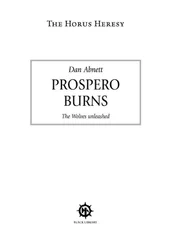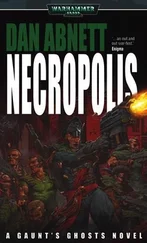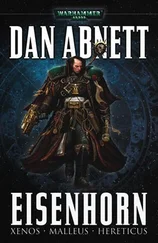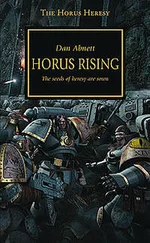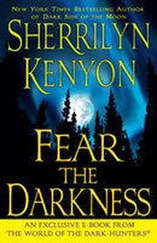He halts. He’s looking at something. He’s looking at something in Oll’s hand.
Oll glances down, confused. He realises he’s been holding something in his other hand all along.
He sees what it is.
The killer makes a sound. A sigh. His lips part, connected by tiny strands of spittle. He looks Oll straight in the face. Straight into his soul.
Oll turns away. He cannot bear to look into those eyes any more. He turns to run.
He sees the light behind him.
He was so captivated by the killer, by the prickling, enveloping darkness, he almost didn’t see the light to begin with.
Now he sees it. It’s not the light it used to be. It’s not the light he used to know.
The light is fading. It was once the most beautiful light, but it’s dwindling. It’s ebbing away and growing dim. Golden, broken, like the angel. And, like the angel, brought low by the killer made out of darkness.
Beyond the light is a vast window port.
Through it, Oll sees the hazy glory of Terra.
The human homeworld is burning.
‘I’ve seen enough,’ says Oll Persson.
[mark: 4.12.45]
It’s the shock. It’s just the shock. You’ve been hurt, and I’ve shown you plenty. Plenty. I’m sorry, I really am. No one should have to see that. No one should have to deal with all of that in one go. But there really isn’t time to be gentle about this.
You saw what you had to see. I showed you where you have to go.
Now, this will hurt. This will be hard. You can do it. You’ve done hard before. Come on, Oll. Come on, my old, dear friend Ollanius.
It’s time to wake up. It’s time to w–
Oll wakes.
No sunlight. No bed. No singing from the kitchen.
Grey light. Fog. Cold.
Pain.
He’s fallen on his back, twisted. His hands are sore, and so is his back, and one of his hips too. His head feels as though iron screws have been driven into it.
He sits up. The pain gets worse.
Oll realises the worst of the pain isn’t his aches and sprains and bruises.
It’s the aftershock. The aftershock of the vision. He rolls onto all fours and dry-heaves, as if he’s trying to vomit out the memory and be rid of it.
It would be tempting to think it was just a nightmare. Tempting and easy. Just a bad dream that happened because he’d had a bump on the head.
But Oll knows the human mind doesn’t imagine things like that. Not like that. Grammaticus was here. The bastard was here. Not in the flesh, but as good as. He was here, and that’s what he had to show.
It says a lot that John made the superhuman effort, and took such an immense risk, to come. It says a lot, and what it says doesn’t sit comfortably with Oll Persson.
He gets to his feet, unsteady. He’s battered and bruised. His clothes are caked in mud that’s just beginning to dry and stiffen. He tries to get his bearings.
There’s not much to see. A dense grey mist is shrouding the entire world. There are rumbling sounds, and dull flashes up behind the clouds. Far away – Oll’s guess would be to the north – there’s a glow, as if something big on the other side of the fog is burning.
Something big like a city.
He looks around. The ground’s a slick of stinking black mud and ooze, of mangled agricultural machinery and broken fence posts. This is the spew the tidal wave left in its wake. This is what’s left of his land, of his fields.
He stumbles along, his boots squelching in the muck. The thick fog is part smoke, part vapour from the flood. The ground stinks of mineral cores and riverbed mire. All of his crops have gone.
He sees a line of fence posts, still standing. From the height of them above the muck, the flood wave left about a metre of silt and soil behind it. Everything’s buried. Worse than damned Krasentine Ridge. He sees a hand, a man’s hand, sticking up out of the black ooze, pale and wrinkled. It looks as if he’s reaching up, grasping for air.
Nothing to be done about it.
Oll reaches the fence posts and leans on one of them. He realises that it’s the gate at the end of the west field level. He’s not where he thought he was at all. He’s about half a kilometre west. The force of the flood water must have carried him, carried him like flood litter, like flotsam. Bloody wonder he didn’t break his limbs or get his brains dashed out against an upright post; it was a wonder he didn’t drown.
Re-aligned, he turns around and heads back the way he came. Now he’s got his bearings, he knows where the farmhab is.
He passes a cultivator unit, on its side and half-sunk in black mud. Then he finds the lane, or what used to be the lane. It’s a groove of ooze, a muddy furrow, knee deep in violet water along its belly. He sloshes along.
‘Master Persson?’
He stops, shocked at the sound of a voice.
A man sits at the edge of the track, his back against what’s left of the fence. He’s plastered in mud.
‘Who’s that?’ asks Oll.
‘It’s me. It’s Zybes.’
Zybes. Hebet Zybes. One of the labourers. One of the pay-by-the-days.
‘Get yourself up,’ Oll says.
‘I can’t,’ says Zybes. He’s sitting oddly against the fence. Oll realises that the man’s left arm and shoulder are wrapped to the fence post with barbed wire. They’ve become tangled together in the flood surge.
‘Hold on,’ says Oll. He reaches into his belt, but his work tools are long since lost. He goes back to the overturned cultivator unit and digs around in the thick mud until he finds the tool box in the cab. Then he comes back with a pair of cutters, and sets Zybes free. The man’s flesh is pretty torn up by the wire.
‘Come on,’ says Oll.
‘Where to?’
‘We’ve got places to be,’ says Oll.
It takes twenty minutes to trek across the mire, through the fog, to the farmhab. What’s left of it.
On the way, Zybes keeps asking questions, questions like, ‘What happened?’ and ‘Why did it happen to us?’
Oll doesn’t have any answers. None that he has the time or desire to explain, anyway.
Five minutes from the hab, they come across Katt, short for Kattereena. Ekatterina. Something like that, Oll forgets. She’s a paid-by-day too, like Zybes, works in the kiln store, drying the sheaves. She’s about seventeen; his neighbour’s girl.
She’s just standing there, in the fog, smirched in mud, looking vacant, staring at something there’s no possibility of seeing because there’s no distance visible, thanks to the fog. Maybe she’s staring at something comforting, like the day before, or her fifth birthday.
‘You all right there, girl?’ Oll asks her.
She doesn’t reply. Shock. Plain shock.
‘You all right? Katt, come with us.’
She doesn’t make eye contact. She doesn’t even nod. But when they start walking again, she follows them at a distance.
The hab is a mess. The floodwash swept right through it, taking away the doors, the windows, and most of the furniture, leaving a half-metre carpet of silt and wreckage in exchange. Oll thinks about looking for that pict of his wife, the one that used to stand on the dresser in the kitchen, but the dresser’s gone, so he doesn’t see much hope of finding a picture that he last saw standing on it.
He tells Zybes and Katt to wait, and goes in. His room’s upstairs, in the roof, so it’s weathered the smash better than the rest. He finds his old service kitbag, made of faded green canvas, and packs it with a few useful bits and pieces. Then he strips off to his work boots, and puts on dry clothes. The best he can find are his old Army-issue breeches and jacket, also green and faded.
He picks up a last few items, choosing things to take and things to leave. There’s a spare coat for Zybes, plus a medicae pack, and a blanket from the bed to keep Katt warm. He goes back down the stairs to find them.
Читать дальше
